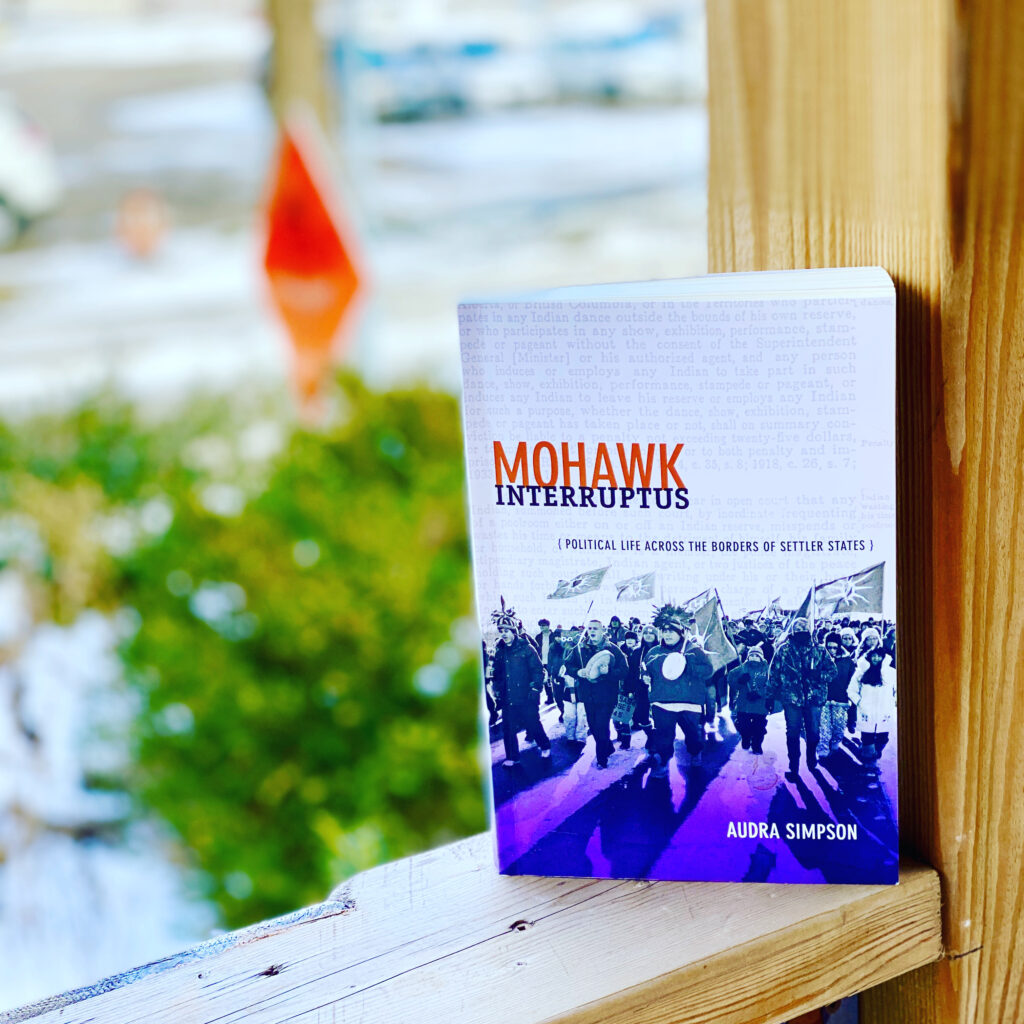
Scholarly. Anthropology, Indigenous studies. The book emerges from ethnographic research conducted among Mohawk people from Kahnawà:ke, and the author herself is Mohawk and from Kahnawà:ke. Unlike a lot of anthropological research, the book takes up questions of key concern to the community itself – things like membership, belonging, and borders – in the context of scrutinizing the settler colonial regimes that have created the past and present in which those are experienced. In the process of doing so, it critically re-examines the quite long history of anthropological engagement with Haudenosaunee peoples, which has often been focused on producing a reified understanding of “culture” disconnected from history, colonization, power, and people’s everyday lives, that then gets turned into a regulatory mechanism for judging authenticity. Simpson argues that this is particularly visible in the case of Kahnawà:ke, in part because it has as a community been rendered peripheral in what is often referred to as “Iroquois studies” for a number of historical reasons. It is also a community that is fiercely sovereigntist, that has received extensive, often hostile, outside attention for its debates regarding membership, and whose members regularly do what they can to refuse the settler regulation of mobility across the colonial border imposed through Mohawk territory. Just in terms of general political education, the book does very useful work contextualizing things like the famous resistance in the early 1990s at Kanehsatà:ke, the tax avoidance by tobacco companies that was constructed in settler media as “Mohawk cigarette smuggling,” the forms that membership debates take, and the range of Mohawk resistance related to the border. It theorizes sovereignty in interesting ways, and describes how notwithstanding the settler state’s claim to absolute sovereignty over its territories, there is in fact a good case to be made for the existence of “nested sovereignties,” in which ongoing Haudenosaunee refusal, kinship, and everyday practices and structures of feeling have maintained a difficult but living practical sovereignty that persists within the space claimed by the settler state. Perhaps of most direct interest and use to me was the work early in the book critiquing anthropology – a form of professionalized listening to the Other that emerged in the context of Empire – both in general and specifically in how it has manifested as “Iroquois studies.” The book is also interesting in how it thinks about refusal as a general political tactic taken up by Mohawk people from Kahnawà:ke and other Haudenosaunee people, and also in the context of ethnography – listening to people talk about their lives for the purpose of producing more broadly circulating knowledge – and writing. Very interesting book.
Originally posted by Scott on Goodreads.